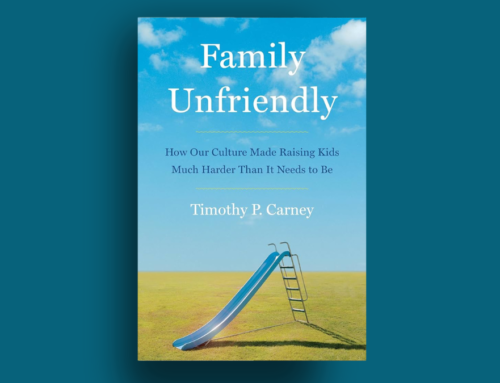Chaff is useless material. To be discarded. Yet the chaff is viewed as the kernel, the grain of everything harvested, processed, and ingested these days.
The chaff is separated from the grain to lie on the ground and rot. Discarded as it has little or no value.
Before we proceed further this is not the upcoming column I mentioned I was going to write in the preface of Australia Pastor: ‘We’ve Lurched So Far to the Left … I Wonder If We Will Remain a Sovereign Nation’ – A CROOKED PATH.
Nor is Woke capital using Environmental Social Governance standards to circumvent Congres – A CROOKED PATH the column I intend to write, although this piece is linked to the current one being read and is connected to what I will be writing.
Because evil is not exclusively in liberal politics, America, or Washington, D.C. Only in democrats if you’re a republican, and only in republicans if you’re a democrat, and then there are the legions of so-called “Christian Nationalists” that are of the mind they can somehow establish God’s kingdom on earth in America and that the solution is certain political figures, making certain laws, winning certain elections.
Where is God, the Lord Jesus Christ, the Holy Spirit, and the Word of God to these folks? Really? Where in their priorities? They imagine they can live on chaff, that chaff is what is most important as they ignore and trample the life-giving nutritious grain right in front of them!
Ignorance and foolishness are always devoid of reason, critical thinking, objectivity, and the truth. This is a deadly concoction to ingest yet the overwhelming majority are drinking that Kool-Aid daily. Rushing to pick up their full cup of delusion and confusion that has a “D” on it or an “R” thinking that is the glass to quench them and explain it all.
Tragic.
This brings us to this one piece of the puzzle, this certain pigment placed on the canvas.
It doesn’t matter if you’re an investor, rich or poor, highly educated and highly thought of, or one of the invisible folks everyone should at least become aware of environmental, social, and governance, or ESG, factors dominating the stock exchanges and financial institutions of the world.
Wall Street, the London Stock exchange, and financial institutions are not cauldrons of leftist leaning socialists, Orwellian or Huxleyian disciples, or communists. Most are conservative because most are only focused on money. Making more of it. All the time.
No man can serve two masters: for either he will hate the one, and love the other; or else he will hold to the one, and despise the other. Ye cannot serve God and mammon. [money, possessions, fame, status, or whatever is valued by a person more than the Lord].
Matthew 6:24 — King James Version
So, dear, devoted disciple of American politics and political parties and politicians and elections how do you square the message in the links provided above as well as the article found below? It isn’t about being a leftist, a progressive, a conservative, or right-wing.
It’s all about, only about being one of two kinds of people, true, but not left or right politically.
It’s all about, only about being either a true renewed of mind and spirit child of God, a true disciple of the Lord Jesus Christ…
…or being a pagan. Not only being in darkness but BEING darkness. At enmity with God. Serving evil. Which can only mean no bones about it, no excuses, no modernist dialogue to explain it as something else — serving Satan, serving the Evil One where evil can only originate from!
Read the words in the following article slowly and carefully and let them really be absorbed. As this is evil being bold, brazen, establishing itself as righteous, holy, a way to “save the world” while making people rich and feel oh-so-good-about-themselves always omitting and turning from God and the Word of God.
Evil no longer sculks about in darkness, behind closed doors, in whispers. Trying to hide.
No, evil has become so pronounced, so accepted, and worshipped by the masses it operates more loudly and brazenly in daylight. On your TV. In every political agency and institution, in every corporation and company — with rare exception — in every school, college and university, and seminary and theology schools — with rare exception.
Until a person ceases to be trapped in the snake pit, the life-sucking quicksand pit of politics, it’s all and only American politics or Western politics, it’s THAT party’s fault! It’s those stinking liberals, it’s those stinking conservatives! and open their eyes finally, open their ears finally, and come to truly finally see and get off that train at the “Politics” station and get on the train that goes much further and leads to where the truth lies that person will keep riding on the train of lies. To their eternal demise.
The above links and the article below might seem impossibly connected or relevant to evil being present. “Oh, it’s just business, that’s all, you’re making much too much of these things, there isn’t a bogey man around every corner!” Nothing is separated from the loom of various threads the Evil One weaves making the fabric of his lies, dyed in patterns and colors and textures to distract and keep one from putting on the full armour of God with eyes wide open and seeing what is unfolding for what it really is.
Chaff. It’s all mostly chaff. To be discarded. Of no value to be trampled underfoot. Stop making it of such value and treating it as if it is the nutritious grain of life to harvest, to ingest.
Ken Pullen
Thursday, June 2nd, 2022
Environmental madness on Wall Street is silencing research analysts
Wednesday, June 1, 2022
By Paul H. Tice
Reprinted from the Washington Examiner
From London to New York, an iron curtain is rapidly descending on research departments across Wall Street in the form of the sustainable investment movement, which posits that environmental, social, and governance, or ESG, factors are the key to market outperformance over the long term. Analysts that don’t get on board with the ESG program — especially when it comes to climate action and the need to decarbonize — run the risk of being canceled.
Wall Street, New York City, New York.
Like the lawyers in Shakespeare’s Henry VI, Wall Street research analysts — whose fundamental sector and company analysis provides the underpinnings for security valuation and efficient primary and liquid secondary trading markets — stand in the way of the ESG mob now intent on creating a “sustainable global financial system.”
Consequently, one of the first things that ESG activists have focused on with their integration efforts over the past five years has been to co-opt research analysts on both the sell-side and the buy-side of the business and enlist them — mostly under duress — to serve as the Praetorian Guard for the ESG movement.
The United Nations’s Principles for Responsible Investment, or UNPRI, the leading sustainability advocate on Wall Street, requires all of its 3,749 investment manager members to incorporate ESG into their in-house research processes. All of these buy-side accounts, in turn, are also encouraged to withhold broker commissions and research poll votes from any sell-side firm for which analysts are not doing the same. Since annual Institutional Investor research rankings are one of the main drivers of sell-side analyst compensation, this tends to cut down on ESG dissent.
Investment banks and asset management firms are also responding to UNPRI pressure by hiring an army of sustainability specialists to chaperone and look over the shoulders of seasoned fundamental analysts in their daily interactions with their coverage companies. Apparently, senior management imposing ESG top-down on Wall Street analysts is not a conflict of interest that currently needs to be disclosed in sell-side research reports or investment fund marketing materials.
As one leading fixed income analyst confided, “Wall Street follows the money. The market (sell-side and buy-side) is running around hiring ESG specialists left and right and building up ESG practices. It’s hard for anyone to be too critical without putting oneself into direct conflict not just with business strategy, but also exposing oneself to attack on ideological fronts.”
Another sell-side researcher put a finer point on it: “Pushing back on ESG can be toxic to your livelihood. As soon as collaborating on ESG research became part of the analyst evaluation and annual compensation process, all hope of challenging it went out the window.”
Research analysts are now being forced to suspend disbelief and forgo the traditional financial approach that they have used for decades to analyze and value company securities. Rather than comparing leverage metrics, cash flow margins, and earnings momentum, analysts are now sizing up carbon footprints, checking on water and electricity usage, and making sure companies are paying their “fair share” of corporate taxes.
Company earnings calls and shareholder meetings are increasingly dominated by ESG-related questions and disclosure demands from analysts. Harassing and haranguing corporate management teams to set and hit sustainability targets for their businesses is what passes for research coverage these days in the brave new world of ESG.
As one senior buy-side analyst complained, “Instead of focusing on fundamentals as the economy is turning, I am spending my time on immaterial, non-financial ESG factors that have no bearing on valuation. Every research recommendation I make these days needs to be justified on ESG terms just to check the sustainability box with upper management.”
Wall Street research analysts are paid to have an opinion and market their views, yet no one currently working in the business has ever gone on record to question the sustainability orthodoxy publicly — mainly due to fear of retribution. The sounds of silence from the research rank and file are deafening, particularly from those analysts covering the oil and gas industry who will soon be out of a job if ESG investing is taken to its logical conclusion.
This is unfortunate because fundamental research analysts are the best equipped to challenge the sophistry of sustainability. A short list of due diligence questions would suffice to expose the fatal flaws of the ESG argument.
Sustainable investing has been around since the 1980s, so why is there such a dearth of empirical data showing that an ESG approach actually leads to better investor outcomes?
Corporate sustainability is another way of saying bankruptcy risk, so why can’t we just keep on using the same credit ratings that have been assigned by the major agencies for more than the past century, given that these are designed to predict default rates?
Why would running a company for the benefit of every constituency in society except for capital providers such as shareholders and creditors necessarily lead to improved pricing for financial assets such as stocks, bonds, and bank loans?
How is it not a breach of fiduciary duty to impose an ESG framework ex-post on an existing fund without a sustainable mandate?
Other than ESG enablers, clean energy sponsors, sustainable fund managers charging higher fees, and companies saving a few basis points by issuing virtuously labeled bonds, how many investors are consistently making money from sustainable investing?
And lastly, since climate change is the No. 1 ESG priority, why is it that the ubiquitous hockey stick chart used to rally support for the cause (i.e., carbon emissions versus temperature anomalies since 1880) cannot be included in any Wall Street research report since it violates Financial Industry Regulatory Authority, or FINRA, standards by being highly misleading due to its distorted scale and opaque data?
With the Federal Reserve now raising interest rates and pulling back on its quantitative support for the market, fundamentals should hopefully start to matter once again as the pricing of all risk assets starts to normalize going forward. Against this, though, U.S. and European regulators are now ramping up new sustainable disclosure and fund reporting requirements to mandate ESG compliance by most market participants.
ESG is now bringing down the curtain on independent Wall Street research, which is a tragedy for a great profession and everyone invested in the financial markets.
Paul Tice is a former Wall Street research analyst and an adjunct professor of finance at New York University’s Stern School of Business.
RELATED:
Christianity in Africa: The Shape of Things to Come?
Our Lost and Evil World, Which its Darkness Will Never Overcome the Light
“Shocking” Survey Finds Only 51% of Evangelical Pastors Hold a Biblical Worldview
Demonic Immolation: Sacrifice To Mother Earth– Climate Activists Hail ‘Heroic’ Man For Burning Himself Alive In Front Of U.S. Supreme Court
Compromised Preaching Contributes to Cultural Rot
The Refrain Changed From Zero Population to Depopulation While the Song Remains the Same
Who Are You Having For Dinner?








Leave a Reply, please --- thank you.